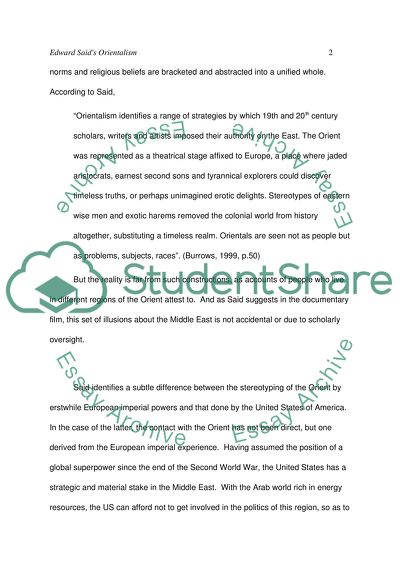Cite this document
(The Socio-Political Equations of American Diplomacy by Edward Said's Movie Review, n.d.)
The Socio-Political Equations of American Diplomacy by Edward Said's Movie Review. Retrieved from https://studentshare.org/politics/1573893-orientalism-by-edward-said
The Socio-Political Equations of American Diplomacy by Edward Said's Movie Review. Retrieved from https://studentshare.org/politics/1573893-orientalism-by-edward-said
(The Socio-Political Equations of American Diplomacy by Edward Said'S Movie Review)
The Socio-Political Equations of American Diplomacy by Edward Said'S Movie Review. https://studentshare.org/politics/1573893-orientalism-by-edward-said.
The Socio-Political Equations of American Diplomacy by Edward Said'S Movie Review. https://studentshare.org/politics/1573893-orientalism-by-edward-said.
“The Socio-Political Equations of American Diplomacy by Edward Said'S Movie Review”, n.d. https://studentshare.org/politics/1573893-orientalism-by-edward-said.


